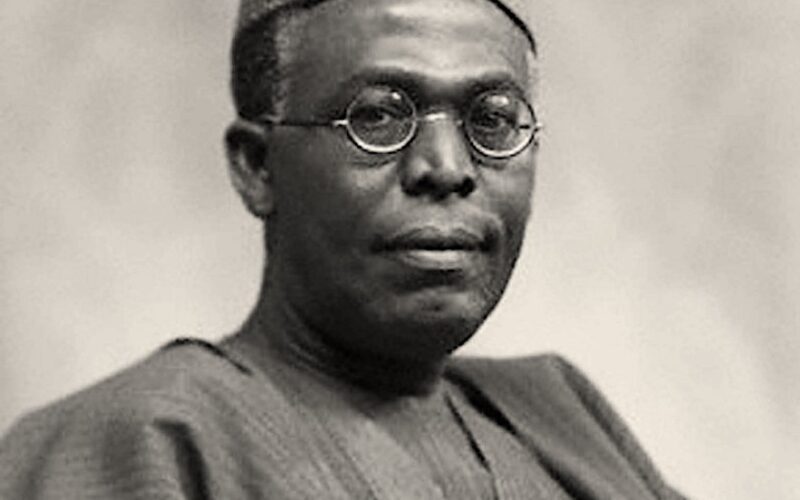Who Was Chief Obafemi Awolowo?
Chief Obafemi Awolowo remains one of Nigeria’s most respected leaders, celebrated for his vision, discipline, and contributions to the country’s political and economic development. Born on March 6, 1909, in Ikenne, Ogun State, Awolowo played a pivotal role in shaping Nigeria before and after independence.
He is remembered for:
- Championing free education for all children in Western Nigeria
- Advocating for regional autonomy
- Promoting responsible governance and fiscal planning
- Using media to enlighten and educate citizens
Awolowo’s influence continues to be studied in schools, universities, and political circles in Nigeria today.
The Official Story: How Chief Obafemi Awolowo Died
On May 9, 1987, Chief Awolowo passed away peacefully at the age of 78 in his hometown of Ikenne, Ogun State. According to official reports:
- He collapsed while brushing his teeth in the early morning
- His death was widely attributed to natural causes
- Tributes poured in from across Nigeria and beyond, reflecting his status as a national icon
- His funeral drew dignitaries, politicians, and admirers from around the world
This account remains the publicly accepted version, widely cited in biographies and historical records.
Controversial Theories Surrounding His Death
Over the years, speculation has grown regarding the circumstances of Chief Awolowo’s death. Some sources allege that political frustrations and internal betrayal may have played a role. While these theories remain unverified, they are frequently discussed in memoirs, interviews, and online publications.
1. Alleged Political Betrayal
Some accounts suggest that Awolowo had plans to challenge the military regime of General Ibrahim Babangida. According to these sources:
- Awolowo and close allies allegedly plotted to thwart Babangida’s indefinite rule
- One insider reportedly leaked the plan, compromising the operation
- This betrayal allegedly placed Awolowo in a politically vulnerable position
2. Suicide Speculations
A controversial narrative claims that, facing political humiliation, Awolowo may have chosen to end his life:
- Reports suggest he may have taken poison to avoid public disgrace
- Alleged confrontation with Babangida is said to have pressured him politically
- Key figures like Chief Lateef Jakande were rumored to be involved, though no official investigation ever confirmed this
Important Note: These claims are largely speculative and have never been verified by official sources or the federal government.
Political Context in 1980s Nigeria
Understanding the political landscape of the 1980s is crucial to contextualizing these rumors:
- Nigeria was under military rule, with frequent coups and political unrest
- Alliances and betrayals were common behind the scenes
- Information control was strict, and media narratives were heavily influenced by the government
In this volatile environment, it’s easy to see how legends and unverified theories could emerge around the death of such a prominent figure.
Chief Obafemi Awolowo’s Legacy Beyond His Death
Regardless of how he passed, Awolowo’s contributions to Nigeria remain unparalleled. Some of his most enduring achievements include:
- Free education programs in Western Nigeria
- Economic planning models that influenced regional development
- Promotion of civic responsibility and public service
- Political writings and speeches that continue to inspire leaders
He left behind a life of purpose, a philosophy of service, and a standard for integrity in governance.
FAQs About Chief Obafemi Awolowo’s Death
Q1: How did Chief Obafemi Awolowo die?
A1: Officially, he passed away from natural causes on May 9, 1987, in Ikenne, Ogun State. He reportedly collapsed while brushing his teeth.
Q2: Did Chief Obafemi Awolowo commit suicide?
A2: There are rumors suggesting suicide due to political pressure, but no verified evidence or official confirmation exists.
Q3: What was Chief Awolowo’s age at the time of death?
A3: He was 78 years old.
Q4: Who were key figures linked to his alleged death theories?
A4: Some accounts mention General Ibrahim Babangida and Chief Lateef Jakande, but these remain unverified rumors.
Q5: What is Awolowo’s lasting legacy?
A5: His legacy includes free education, visionary political leadership, regional autonomy advocacy, and his writings, which continue to inspire generations of Nigerians.
Conclusion
Chief Obafemi Awolowo’s death remains a topic of debate and speculation. While official records confirm natural causes, political intrigue and conspiracy theories continue to circulate. What remains undeniable, however, is his impact on Nigeria’s political and educational landscape.
As we reflect on his life, the focus should be on upholding his values of justice, education, and national service — lessons that transcend time and circumstance.







